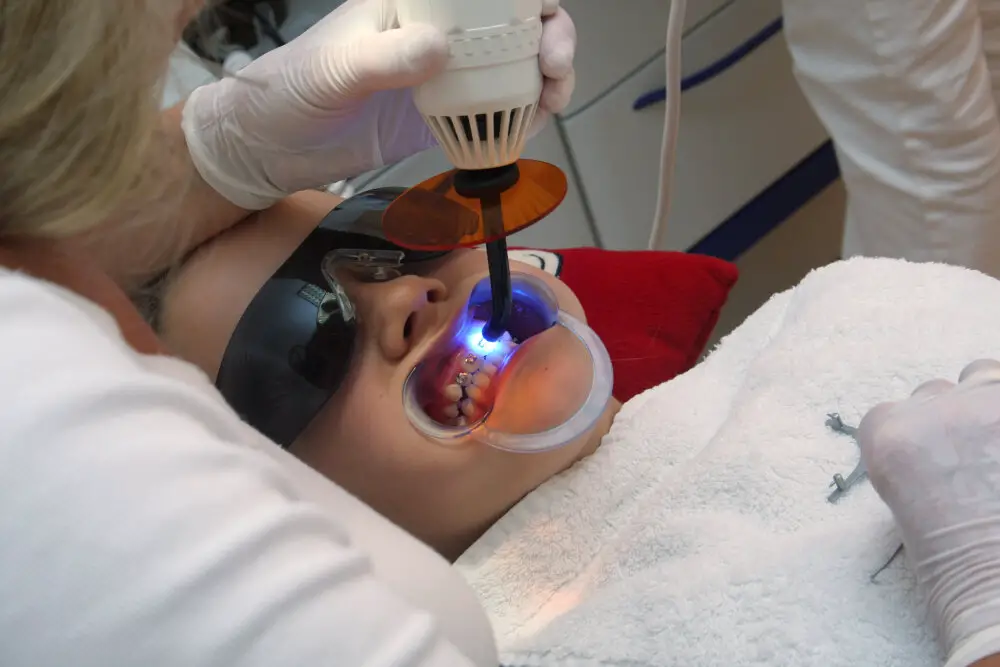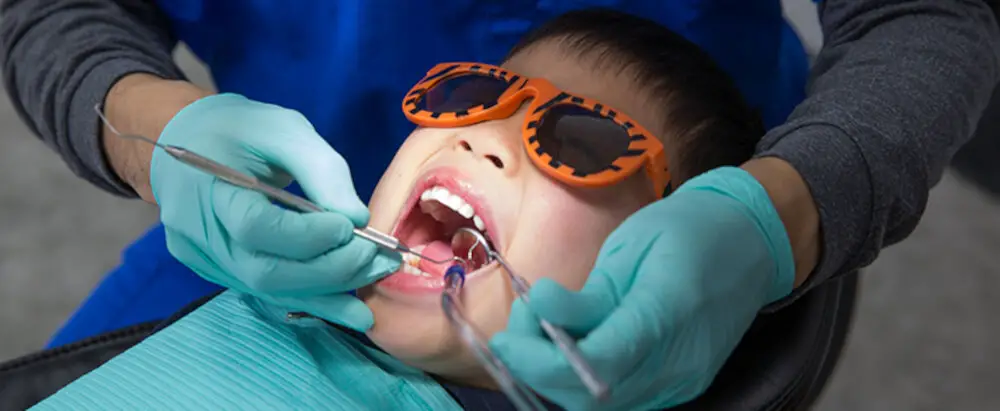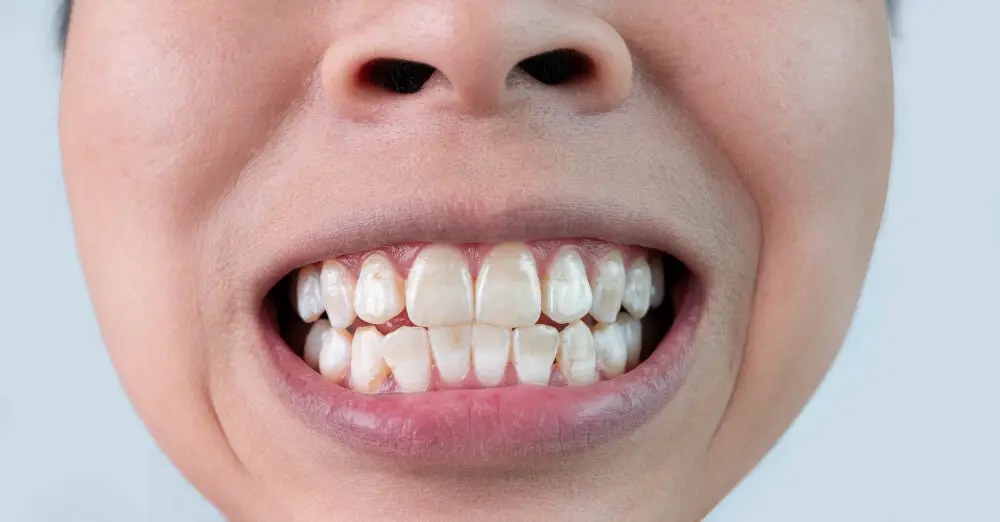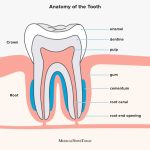5 Natural Ways to Clean Wisdom Teeth Holes Without Using Syringe

Wisdom teeth removal is a common dental procedure that involves extracting the third molars situated at the back of the mouth. After the extraction, the healing process requires a lot of care and attention to avoid infections and other complications. One of the most uncomfortable and painful aspects of the recovery process is the formation of wisdom teeth holes that usually fill with food particles and bacteria. The traditional method of cleaning these holes involves using a syringe to flush out the debris. However, there are natural ways to clean wisdom teeth holes without using a syringe, and in this article, we will explore five of them. These natural ways of cleaning wisdom teeth holes are safe, effective, and easy to use. They involve using readily available ingredients that are gentle on the gums and do not cause any adverse effects. Whether you have just had your wisdom teeth removed or are looking for natural ways to clean the holes, this article will provide you with practical solutions that will help you maintain good oral health. From saltwater rinses to herbal remedies, these natural methods are an excellent alternative to syringe-based cleaning and are worth considering.
Wisdom teeth, also known as third molars, typically emerge in the late teens or early twenties. These teeth can cause discomfort and pain when they begin to grow, and they can create holes in the gums when they are extracted. These holes are called sockets, and they can become infected if not cleaned properly. Many people use syringes to clean these sockets, but this method can be painful and may damage the surrounding tissue. Instead, there are several natural methods for cleaning these holes without the use of a syringe. These methods include using saltwater rinses, herbal mouthwashes, and specialized toothbrushes. By taking care of these holes, individuals can avoid painful infections and promote healing in the surrounding tissue.
Salt Water Rinse

If you’re looking for a natural way to clean wisdom teeth holes without using syringe, a salt water rinse can be a great option. Salt water rinses are a simple and effective way to prevent infection and promote healing in the mouth. The salt in the rinse helps to kill bacteria and reduce inflammation, which can help to ease any discomfort or pain you may be experiencing. To make a salt water rinse, simply dissolve a teaspoon of salt in a cup of warm water. Swish the solution around your mouth for about 30 seconds before spitting it out. You can repeat this process several times a day, especially after eating or drinking. Not only does a salt water rinse help to clean wisdom teeth holes, but it can also be useful for treating other oral health issues, such as gum disease or canker sores. Just be sure to use warm water and not hot water, as hot water can cause further irritation or damage to the mouth.
Preparing and using a salt water rinse is a simple and effective way to clean wisdom teeth holes without using a syringe. Firstly, mix a half teaspoon of salt into a cup of warm water and stir until it dissolves completely. Next, take a mouthful of the solution and swish it around your mouth for 30-60 seconds, making sure to reach the wisdom teeth holes. Spit the solution out and repeat the process until you’ve used up all the solution. It’s important not to swallow the salt water rinse as it can cause dehydration and upset your stomach. Salt water rinse helps to reduce inflammation, promote healing and prevent infections. You can use it multiple times a day for better results.
A salt water rinse is a natural and effective way to clean and heal wisdom teeth holes after extraction. Salt is a natural antiseptic that can help reduce inflammation, prevent infection, and promote healing. When mixed with warm water, salt creates a saline solution that can help flush out any food particles or debris that may be trapped in the hole, reducing the risk of infection. Additionally, the warm water can help soothe any discomfort or pain associated with the healing process. Overall, using a salt water rinse as part of your daily oral hygiene routine can help speed up the healing process and ensure a healthy recovery after wisdom teeth extraction.
Before using a salt water rinse to clean wisdom teeth holes, it is essential to take some precautions to prevent any complications. Firstly, ensure that the water used to make the saline solution is clean and sterile to avoid any infections. Secondly, avoid using too much salt, as it can cause irritation and dryness of the mouth. Start with a small amount of salt and gradually increase it as needed. Thirdly, do not swallow the solution as it may cause nausea and vomiting. Spit it out after swishing it around the mouth for a few minutes. Lastly, if you experience any unusual pain or discomfort after using the rinse, consult a dentist for further guidance.
Tea Tree Oil Rinse

Tea tree oil rinse is one of the best natural ways to clean wisdom teeth holes without using a syringe. Tea tree oil is an essential oil that is derived from the leaves of the tea tree plant. It has antiseptic and antimicrobial properties that make it an effective solution for cleaning and healing wounds. To make a tea tree oil rinse, mix a few drops of tea tree oil with warm water and swish it around your mouth for about 30 seconds. Then spit it out and rinse your mouth with water. Repeat this process two to three times a day to help keep your wisdom teeth holes clean and prevent infection. One of the benefits of using a tea tree oil rinse is that it can help reduce inflammation and pain caused by wisdom teeth extraction. Tea tree oil has anti-inflammatory properties that can help reduce swelling and pain in the gums. It can also help prevent the growth of bacteria in the wisdom teeth holes, which can help prevent infection and promote faster healing. Additionally, tea tree oil has a pleasant scent and taste, making it a more enjoyable alternative to traditional mouthwash. Overall, a tea tree oil rinse is a natural, effective, and safe way to clean wisdom teeth holes and promote healing.
Tea tree oil, derived from the leaves of the Melaleuca alternifolia plant, has been used for centuries for its antiseptic and anti-inflammatory properties. When it comes to oral health, this essential oil can be particularly beneficial for those dealing with wisdom teeth holes. Tea tree oil can help reduce inflammation, fight infection, and soothe pain. It can also help keep the area clean by removing harmful bacteria and reducing the risk of further infection. However, it is important to remember that tea tree oil should always be diluted before use and should not be ingested.
Tea tree oil rinse is an effective natural way to clean wisdom teeth holes without using a syringe. First, mix a few drops of tea tree oil with warm water in a cup. Then, tilt your head to the side and swish the mixture around the affected area for about 30 seconds. Spit out the mixture and repeat on the other side. This will help kill bacteria and reduce inflammation in the holes. It’s important to note that tea tree oil should not be ingested and should be used with caution, especially if you have sensitive skin. It’s recommended to use this rinse once a day until the holes have healed.
Before using a tea tree oil rinse for cleaning wisdom teeth holes, there are some precautions that should be taken. First and foremost, it is important to dilute the tea tree oil with water or a carrier oil to avoid any potential irritation or burning of the gums. Additionally, those who are pregnant or breastfeeding should avoid using tea tree oil. It is also important to note that tea tree oil should not be ingested and should only be used as a rinse. Lastly, if any adverse reactions occur, such as swelling or redness, discontinue use and consult a dentist or healthcare professional. By taking these precautions, individuals can safely and effectively use tea tree oil as a natural way to clean wisdom teeth holes without using a syringe.
Clove Oil Rinse

Clove oil rinse is a natural and effective way to clean wisdom teeth holes without using a syringe. Clove oil is known for its antiseptic, anti-inflammatory, and analgesic properties, which make it a great choice for oral health. To make a clove oil rinse, mix a few drops of clove oil in a cup of warm water and swish it in your mouth for about 30 seconds. Spit it out and repeat a few times a day, especially after meals. The rinse will help to reduce pain, swelling, and inflammation, and prevent infection in the wisdom teeth holes. Clove oil is a natural remedy that has been used for centuries to treat various dental problems. It contains eugenol, which has antibacterial and antifungal properties that can help to eliminate harmful bacteria and fungi in the mouth. Additionally, clove oil is a natural anesthetic that can help to numb the pain associated with wisdom teeth holes. By using a clove oil rinse, you can promote healing and prevent complications such as dry socket, which can occur when food particles and bacteria become trapped in the wisdom teeth holes. Overall, clove oil rinse is a safe and effective way to clean wisdom teeth holes without using a syringe or other invasive methods.
Clove oil, derived from the buds of the Syzygium aromaticum tree, has been used for centuries for its medicinal properties. It contains eugenol, a natural anesthetic and antiseptic, which makes it an effective remedy for toothache and oral health. Clove oil can provide immediate relief from toothache by numbing the affected area and reducing inflammation. Additionally, it can help prevent tooth decay and gum disease by killing harmful bacteria in the mouth. Its antifungal properties can also help treat oral thrush, a common fungal infection in the mouth. Clove oil can be applied directly to the affected area or added to a warm saltwater rinse for maximum benefits.
Clove oil is an excellent natural remedy for wisdom teeth holes, thanks to its anti-inflammatory and analgesic properties. To prepare a clove oil rinse, start by mixing a few drops of clove oil with a tablespoon of warm water. Swish the solution around your mouth for about 30 seconds, making sure it reaches the wisdom teeth holes. Spit out the solution and rinse your mouth with warm water. You can repeat this process up to three times a day to help reduce pain and inflammation in the wisdom teeth holes. However, be sure not to swallow the mixture, as clove oil can be toxic in large doses.
Before using clove oil rinse, there are a few precautions to take to ensure safety and effectiveness. First, it is important to dilute the clove oil with a carrier oil, such as coconut oil, to prevent irritation or burning of the gums. Additionally, individuals with sensitive skin or allergies should perform a patch test before using the rinse. It is also recommended to consult a dentist or healthcare provider before using clove oil rinse, especially if there are any underlying dental or health conditions. Finally, clove oil should not be ingested and should be kept out of reach of children and pets. By taking these precautions, individuals can safely and effectively use clove oil rinse to promote healing and cleanliness in wisdom teeth holes.
Aloe Vera Gel Application

Aloe Vera Gel Application can be a great way to clean wisdom teeth holes without using a syringe. Aloe vera is known for its anti-inflammatory, antibacterial, and antifungal properties, which make it an excellent natural remedy for oral hygiene. You can use fresh aloe vera leaves or store-bought aloe vera gel for this purpose. Simply apply a small amount of aloe vera gel to the wisdom teeth hole using a cotton swab or your clean finger and leave it for a few minutes before rinsing your mouth with water. Aloe vera gel can help soothe the pain, reduce inflammation, and promote healing of the wisdom teeth hole. In addition to its cleansing properties, aloe vera gel can also provide relief from oral discomfort and inflammation caused by wisdom teeth extraction. Applying aloe vera gel to the wisdom teeth hole can help reduce swelling, prevent infection, and speed up the healing process. Aloe vera gel is also safe and gentle, making it an ideal solution for those who prefer natural remedies or have sensitive teeth. However, it is important to note that aloe vera gel should not be used as a substitute for professional dental care. If you experience severe pain, swelling, or bleeding after wisdom teeth extraction, it is important to seek immediate medical attention.
Aloe vera gel is a natural remedy that has been used for centuries to promote overall health and wellness. It is derived from the aloe vera plant and is known for its anti-inflammatory, antibacterial, and antifungal properties. When it comes to oral health, aloe vera gel can be incredibly beneficial for those with wisdom teeth holes. The gel can help to soothe and heal the area, reducing inflammation and preventing infection. Additionally, aloe vera gel can help to alleviate pain and discomfort, making it an excellent choice for those who are experiencing discomfort after wisdom tooth extraction. To use aloe vera gel for oral health, simply apply a small amount directly to the affected area, being sure to rinse your mouth thoroughly afterward.
Applying aloe vera gel to wisdom teeth holes is an effective way to clean and soothe the area. To begin, ensure that your hands are clean and then extract fresh gel from an aloe vera leaf. Apply the gel directly to the wisdom teeth holes, making sure to cover the entire area. You can use a clean cotton swab or your finger to apply the gel gently. Allow the gel to sit for a few minutes before rinsing your mouth with warm salt water. Repeat this process twice a day to promote healing and prevent infection. Aloe vera gel contains anti-inflammatory and antibacterial properties that can help reduce pain and inflammation while promoting faster healing.
Before using aloe vera gel to clean wisdom teeth holes, it is crucial to take necessary precautions. Firstly, ensure that the gel is pure and free from any harmful additives that may cause irritation. It is advisable to conduct a patch test on a small area of the skin before applying it to the wisdom teeth holes. Additionally, check for any allergies that may trigger an adverse reaction. It is also essential to maintain good oral hygiene by brushing and flossing regularly and avoiding excessive consumption of sugary and acidic foods and beverages. If you experience any discomfort or pain after using aloe vera gel, seek medical attention immediately. By taking these precautions, you can safely and effectively clean wisdom teeth holes using aloe vera gel.
The aftermath of wisdom tooth extraction can be pretty painful and uncomfortable, but keeping the holes clean is crucial for quick healing. While syringe is the most commonly used tool for cleaning these holes, not everyone likes it. Fortunately, there are a few natural ways to keep the wisdom teeth holes clean without using a syringe. One of the easiest ways is using salt water or saline solution for rinsing the mouth. Another effective method is using a tea bag soaked in warm water and then placing it on the affected area to reduce swelling. Additionally, a mix of hydrogen peroxide and water can be used as a mouthwash. Chewing on garlic or ginger can help with pain and inflammation, while consuming vitamin C-rich foods can boost the healing process. With these natural methods, you can keep your wisdom teeth holes clean and healthy without having to use a syringe.
Using natural remedies for oral health has numerous benefits. Firstly, they are free of chemicals and toxins, which makes them safe for oral use without any side effects. Secondly, natural remedies are affordable and easily accessible, making them an excellent option for people who do not want to spend a lot of money on expensive dental treatments. Thirdly, natural remedies such as saltwater and clove oil have anti-inflammatory and analgesic properties, which can help reduce pain and inflammation associated with wisdom teeth holes. Fourthly, natural remedies are easy to use and can be incorporated into daily oral hygiene routines, promoting good dental health and preventing future dental issues. Lastly, using natural remedies can reduce the risk of developing antibiotic resistance, which is a growing concern in modern medicine.
In conclusion, maintaining good oral hygiene is crucial for the overall health of the mouth. Brushing twice a day, flossing daily, and using mouthwash can help prevent the buildup of bacteria, plaque, and tartar. Additionally, incorporating natural remedies such as saltwater rinse, tea tree oil, and clove oil can help alleviate discomfort and promote healing in wisdom teeth holes. It is also important to avoid smoking, limit sugary and acidic foods, and visit the dentist regularly for checkups and cleanings. By following these recommendations, individuals can ensure their wisdom teeth holes remain clean and healthy, promoting overall oral health.
Conclusion

In conclusion, maintaining good oral hygiene is essential for overall health and wellness. Cleaning wisdom teeth holes without using a syringe can be a safe and effective way to promote healing and prevent infections. Incorporating natural remedies such as saltwater rinse, tea tree oil, and clove oil can help reduce inflammation, soothe pain, and promote healing. Additionally, incorporating healthy habits such as drinking plenty of water, avoiding smoking, and eating a balanced diet can also contribute to faster healing. By following these natural ways, we can ensure that our oral health remains in good condition and prevent any complications that may arise from wisdom tooth extraction.







